Introducing the Diploma in Climate Medicine
The University of Colorado Anschutz School of Medicine is proud to offer a comprehensive professional development program for healthcare providers across all specialties. The Diploma in Climate MedicineTM trains leaders to advocate for climate-resilient, patient-centered policies that serve diverse communities and systems.
Discover how our graduates are turning climate-informed education into real-world impact across clinical practice, health system leadership, and policy. Explore our 2022-2025 Impact Report to see how a strong community of practice is shaping the future.
Program Overview
Become a leader in the critical health issue of our time.
Why Climate Medicine?
As climate change intensifies, it places immense stress on ecosystems and disproportionately affects vulnerable populations. Climate Medicine® recognizes the profound connections between environmental change and human health. Governments, nonprofits, and healthcare systems are mobilizing to address these challenges, but success depends on leaders who can bridge the complex connections between climate and health.
The Diploma in Climate Medicine equips healthcare providers to lead in climate and health policy, environmental justice, health system decarbonization, workforce training, and research dissemination. Graduates become trusted advisors to leaders in healthcare, government, and community organizations, advocating for policies that prioritize health and equity.
Who Should Participate?
The program is open to U.S.-based healthcare professionals with an advanced degree and licensure in any clinical field. This includes prehospital care providers, nurses, allied health professionals, and physicians. If you’re a clinician ready to drive meaningful change in addressing the health impacts of climate change—regardless of your specialty or prior knowledge—this program provides hands-on training and credentials to become a credible advocate for patient-centered climate policies.
What is the Diploma in Climate Medicine?
The Diploma in Climate Medicine is a 300-hour, five-part continuing education program designed to provide healthcare professionals with expertise in the health impacts of climate change. Each Certificate covers a key area of Climate Medicine and when possible is offered adjacent to a major climate and health event. Completing all five Certificates earns participants the "Diplomate in Climate Medicine" (DCM) credential.
Certificate Topics:
- Foundations in Climate Medicine
- Sustainable Healthcare
- Disaster Resilience and Response
- Community Resilience
- Global Challenges
Each certificate integrates themes of Climate Equity & Environmental Justice, Effective Communication, and Leadership, with real-world insights from community leaders and practical skills for policy influence. Participants can complete individual certificates or earn the full diploma, receiving continuing medical education (CME) credits and both a professional certificate and micro-credential from the CU Anschutz School of Medicine.
Key Program Elements:
- Hybrid learning with asynchronous, synchronous, and in-person components.
- Small cohort sizes for networking and mentorship.
- Instruction by nationally recognized experts.
- Interactive sessions, simulations, and one-on-one coaching.
- In-field experiential learning.
- A commitment to fostering a diverse learning environment; women and underrepresented groups in medicine are especially encouraged to participate.
- Ongoing engagement in a community of practice.
Program Format
Each 60-hour Certificate is delivered in a flexible hybrid format to maximize flexibility, engagement, and hands-on learning:
- Virtual Asynchronous Learning (30-35 hours): Self-paced virtual lectures and readings provide foundational knowledge.
- Virtual Live Sessions (9 hours): Interactive sessions feature case studies and practical tools, with time for Q&A and small group discussions.
- On-Location Immersive Experience (2-3 days): Participants gather at locations aligned with each Certificate’s theme, focusing on skills development through simulations and hands-on practice. When possible, Certificates are scheduled adjacent to other national climate and health events allowing for bundled travel.
Attendance is required at all live sessions.
Diplomates in Climate Medicine will be credible, knowledgeable, and effective leaders on smart, patient-centric policies on this critical health crisis.
Program Outcomes
Graduates of the Diploma in Climate Medicine will gain:
- Expertise in Climate and Health: Comprehensive understanding of climate impacts on health, including mitigation, adaptation, and co-benefits.
- Public Health & Emergency Planning: Skills for climate-responsive public health and emergency preparedness.
- Clinical Practice Insight: Perspectives on diagnosing, managing, and mitigating climate-related health issues.
- Policy Development Skills: Practical experience in crafting effective climate and health policies.
- Communication Skills: Techniques for effectively discussing climate and health issues with diverse audiences.
- Commitment to Environmental Justice: A nuanced understanding of environmental justice in the context of climate change.
- Tools for Health System Decarbonization: Knowledge to advance sustainable practices in healthcare.
- Leadership in Climate and Health: Strengthened capacity to advocate for climate-resilient, patient-centered policies.
Educational Partners
We are proud to partner with the following organizations to support this program.
- Burness
- Eugene S. Farley, Jr. Health Policy Center
- Health Care Without Harm
- Metaphora Consulting
- Practice Greenhealth
- Texas A & M Engineering Extension Service (TEEX)
- The Medical Society Consortium on Climate & Health
- Wilderness Medical Society
CME Credits
We are pleased to partner with the Wilderness Medical Society to offer AMA PRA Category 1 Credits™. Each Certificate will include 35-50 hours of CME.
Each activity has been planned and implemented in accordance with the accreditation requirements and policies of the Accreditation Council for Continuing Medical Education (ACCME) through the joint providership of the Wilderness Medical Society (WMS) and Climate & Health Program at University of Colorado School of Medicine. The WMS is accredited by the ACCME to provide continuing medical education for physicians.
Each physician should claim only the credit commensurate with the extent of their participation in the activity.
All educational content presented in these activities has been reviewed and validated as appropriate in keeping with sound scientific principles.
The faculty and staff involved with these live activities have signed disclosure statements indicating they have no conflicts of interest or relevant financial relationships with any commercial interest with respect to this course content.
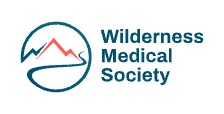
Diploma in Climate Medicine Certificates
Each 60-hour Certificate is offered once per year. Certificates may be completed in any order with the exception of Global Challenges, which requires participation in one or more prior Certificates.
Diploma in Climate Medicine at a Glance
Foundations in Climate Medicine
Foundations in Climate Medicine prepares clinicians to navigate and articulate the complex interplay between public health, climate science, energy policy, earth science, and governance. Translating intricate scientific concepts—such as the links between extreme heat and urban illness, biodiversity loss and pandemics, or extreme weather and food insecurity—into actionable insights is critical for effective advocacy and policy development. Climate Medicine specialists are uniquely positioned to fill this gap, crafting patient-centered narratives that engage policymakers, community leaders, and health system executives in promoting climate-resilient health policies, addressing environmental justice, and guiding health systems toward decarbonization.
Key Features:
- Examination of the health impacts of climate change, including air quality, extreme weather, heat, diet, and gender-specific effects.
- Interdisciplinary sessions with renowned experts, including atmospheric scientists, environmental health specialists, and communication science professionals.
- Facilitated sessions to explore how climate models work, including a hands-on experience running a model and observing climate data.
- Field exploration with a land manager on the front lines of climate-driven wildfires and community impacts.
- In-depth reviews of IPCC and National Climate Assessment reports.
- Training in narrative medicine and climate communication, and strategies for effective change management.
- Introduction to advocacy and oral testimony.
- Optional tour of the U.S. National Science Foundation Ice Core Facility (NSF-ICF).
Sustainable Healthcare
The U.S. healthcare sector contributes approximately 8.5% of national carbon emissions, with a significant environmental footprint generated by facility operations, energy consumption, and supply chains. Addressing this impact requires healthcare leaders who can drive sustainable, cost-saving strategies. From energy efficiencies and waste reduction to “greener” clinical practices, healthier food services, and sustainable purchasing, these initiatives present meaningful opportunities for healthcare professionals to lead as agents of change. By championing sustainability, clinicians can influence both the sector's economic impact and its commitment to community health and well-being.
Key Features:
- Greenhouse gas accounting for healthcare facilities.
- Circular healthcare and sustainable waste management practices.
- Analysis of pharmaceuticals' impact on planetary health.
- Conducting life cycle assessments for healthcare goods and services.
- Sustainable healthcare policy development.
- Best practices from leading healthcare facilities, Health Care Without Harm, and Practice Greenhealth.
- Engagement with federal policy experts on healthcare decarbonization.
- Skills for effectively pitching sustainability initiatives to organizational leadership.
- Scheduled adjacent to CleanMed, the premier conference on environmental sustainability in the health care sector.
Disaster Resilience and Response
Climate change, recognized by The Lancet as the “biggest global health threat of the 21st century,” is intensifying wildfires, hurricanes, and extreme weather events that degrade air quality, disrupt communities, and lead to widespread illness.
These shifts strain the social determinants of health, with climate-related effects resembling an emergency department triage list: heat-induced fainting, respiratory issues from pollution, vector-borne diseases, and trauma from extreme weather events.
This course delves into the root causes of climate-driven disasters and equips participants with strategies for disaster response and resilience planning including vulnerability assessments and climate action plans.
Key Features:
- Case studies such as extreme heat events in the Western United States, extreme weather in the Gulf coasts and Caribbean, and threats to major safety net hospitals in New Orleans and New York City.
- Risk and vulnerability assessments for healthcare facilities and hospital systems.
- Exploration of climate action plans.
- Insight into stress injury awareness in disaster settings.
- Sessions with federal policy experts on national disaster mitigation strategies.
- Collaboration with environmental justice leaders on equitable approaches to disaster preparedness and response.
- National Incident Management System and disaster response training.
- Two days of immersive, hands-on scenario training at TEEX Disaster City, including participation in the renowned annual Disaster Day event.
Community Resilience
The economic and structural systems that drive climate change and environmental degradation also shape public health and the social determinants of health. Protecting communities requires a deep understanding of the core drivers of public health and policy at the individual, local, and regional levels. This course examines how innovations in transportation, the built environment, and energy shape social and health outcomes. Emphasis will be placed on using tools like policy briefs and public messaging to prepare for effective advocacy. Through expert-led sessions and insights from community leaders, participants will learn strategies for advancing environmental justice through co-production and collaboration.
Key Features:
- Introduction to public health infrastructure, policy, and climate resilience with guidance from regional and national experts.
- Insights on strategies to decarbonize the electrical grid and achieve Net Zero goals.
- Case studies demonstrating real-world applications of city and state level climate action plans.
- Tips for tracking environmental health legislation.
- Training in media communication, featuring interactive sessions with Burness on message development.
- Scheduled adjacent to Our Planet, Our Health: 2025 Climate Action Convention, a collaborative gathering focusing on planetary health and climate action.
- Optional Capitol Hill advocacy day, where participants will engage with U.S. legislators on climate health policies.
Global Challenges
The health impacts of climate change are closely connected to global carbon economics and development priorities. Understanding energy transformation policy requires a thorough grasp of the environmental effects of both current and emerging energy supply
chains, along with advances in renewable energy, sustainable mining, geo-engineering, and carbon capture technologies. Transparent, accurate, and comparable greenhouse gas accounting is essential to propel global climate action. Leveraging international
environmental and planetary health policies is key to addressing complex global health challenges, such as climate-induced drought, malnutrition, displacement, and conflict.
Key Features:
- Examination of One Health and Planetary Health frameworks.
- Introduction to international human rights and environmental law.
- Case studies in forest conservation and restoration.
- Exploration of water and food system challenges in a changing climate.
- Insights into greenhouse gas emission accounting, energy economics, supply chain transparency, and renewable energy advancements.
- Perspectives from global climate doctors.
- Exploration of the Plant Select program at the Denver Botanic Garden.
- Scheduled adjacent to the Annual Critical Minerals Symposium hosted by the Payne Institute for Public Policy at the Colorado School of Mines.
Meet Our Experts
Climate Medicine represents a new frontier in clinical care, and at the University of Colorado Anschutz School of Medicine, we are defining it. Through our Climate & Health Program, we leverage education, research, service, and partnerships to build a dedicated and sustainable community. Our mission is to enhance the capacity of all healthcare professionals to address this critical health crisis. We can't think of a more important endeavor for our creative energies, educational passion, and professional work.
Along with our in-house experts, we collaborate with leading figures in the field to enrich our team and provide a comprehensive educational experience. Our distinguished core faculty anchor our programs with their unparalleled expertise and experience. They are supported by a diverse group of instructors who combine academic research with practical insights. Together, they delve deeply into critical topics, equipping you with knowledge from those at the forefront of the climate and health dialogue.
PROGRAM LEADERSHIP
|
Shana Tarter, WEMT, FAWM |
Jay Lemery, MD |
|
CORE FACULTY
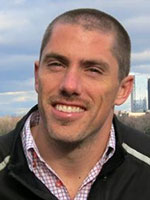 Kris Karnauskas, PhD Kris Karnauskas, PhD |
|
|
|
|
|
INSTRUCTORS
| Chirjiv Anand, PhD MS | Joshua A. Basseches, PhD | David Abramson, PhD, MPH |
| Marcalee Alexander, MD | Isabela-Cajiao Angelelli MD | Nick Arisco PhD |
| Mona Arora, PhD | Amina Audu, PhD | Elizabeth Babcock, JD |
| Satchit Balsari, MD MPH | John Beard | Eric Berzon, MBA |
| Paul Biddinger, MD | Melissa Bilec, PhD | Jo Bjorgaard, DNPc |
| Hayley Blackburn, PharmD | Kate Boicourt, M.EnvS | Aparna Bole MD |
| Jaime Butler-Dawson, PhD, MPH | Jonathan J Buonocore, PhD | Matt Burgess, PhD |
| Jordan Lee Calderon, PhD Candidate | Christopher Carter, AICP | Joel Charles, MD MPH |
| Paul Charlton, MD | Anna Chen | Brian Cheseboro, MD |
| Paul Chinowsky, PhD | Ann Marie Chischilly, JD | Jasmine Chiu, MPA |
| Amy Collins, MD | James Crooks, PhD | Tracy Cushing, MD MPH |
| Shanda Demorest, DNP, RN, PHN | Caleb Dresser, MD | Colleen Duncan, PhD |
| Juliana Duffy | Alan Eber | Matthew Eckelman PhD |
| Keith Edgerton | Utibe Effiong, MD, MPH, MHA | Oliver Eitelwein, PhD |
| James Eustace | Aaron Ferguson, MPA | Gregg Furie, MD |
| Michael Garber, PhD, MPH | Glen Garrick, MBA | Beth Gillespie MD |
| Dave Gustafson, Open Space Ranger Specialist | Karly Hampshire MD Candidate | Aisha Harris, MD |
| Dorothy Heinrich | Tanya Heikkila, PhD | Antonia Herzog |
| Andrea Hicks, PhD | Adele Houghton, DrPH | Courtney Howard, MD |
| Lori Hunter, PhD | Mark Jacobson, PhD | Roderick Jackson, PhD |
| Preeti Jaggi, MD | Katherine James, MPH | Bob Kitchen, MD |
| Ken Kizer, MD | Jen Kuhl | Megan Latshaw, PhD |
| Warren Lavey, LD, MS | Mac Lawrence | Alexis Pearl Lee, MBA |
| Jules Le Gaudu, MS | Kyle Leggott, MD | Katie Lichter, MD, MPH |
| Vijay Limaye, PhD | Charles Little, DO | George E. Luber, PhD |
| Jordi Luke, MA | Julia Maldonado, PhD | Julie Maldonado, PhD |
| Nathaniel Matthews-Trigg, MPH, CEM | Laura McGladrey PMHNP, FNP, MSN, RN | Lisa McKenzie, PhD |
| Christopher McStay MD, MBA, FACEP | Lisa Merritt, MD | Mary Meyer, MD, MPH |
| Jeni Miller | Mark Mitchell, MD, MPH, FACPM | Twila Moon, PhD |
| Gary Morishima, PhD | Susanne Moser, PhD | TlalliAztlan “Tlalli” Moya-Smith, MD |
| Julie K. Moyle, MSN, RN | Bradley Neuman, MS | Dana Nuccitelli, MS |
| Terry O'Connor, MD | Adesola Odole, PhD | Brian O'Malley, MUP |
| Hilary Ong | Erin Overturf, JD | Ryan Paterson, MD |
| Alfonso Pedraza-Martinez | Zach Pierce | Bernadette Woods Placky |
| Leah Poole, MS, MPH | Jon Polley | Jeremy Proville, MS |
| Sheetal Rao, MD | Arvind Ravikumar, PhD | Vivek Ravichandran, PhD |
| Rebecca Rehr, MPH | Colleen Reid, PhD | Caitlin Rublee, MD, MPH |
| Jen Robohm PhD | Nonette Royo, LLB | Ali Saad, MD |
| Todd L Sack MD FACP | Raychel Santo, MSc | Emily Sbiroli, MD |
| Elizabeth Schenk, PhD, RN, FAAN | Nick Seaver | Brandon Seibold |
| Rahul Sharma, MD, MBA | Tom Sherman, MD | Ted C. Shieh, MD |
| Ross Shrigley | Hardeep Singh, MD | Emma Sirois |
| Dean Sittig, PhD | Jonathan Slutzman, MD | Matt Smith, MD, MPH |
| Nick Snow, MD | Laura Stevens, M. Phil | Ken Strzepek, PhD |
| Lise Van Susteren, MD | Nova Tebbe | Cassandra Thiel MD |
| Sebastian Thomas, PhD | Jeff Thompson MD | Jonathan Skinner Thompson, JD |
| Will Toor, PhD | Neelu Tummala, MD | Andy Valeras, DO |
| Walt Vernon, PE, LEED AP, EDAC | Neil Vora, MD | Seema Wadhwa |
| Moriah A. Washington, MPA | Adam Warren PhD | Smitha Warrier, MD |
| Shel Winkley | Nick Watts MBBS | Anna Weber, MPH |
| Jennifer Wells, MS | Stefan Wheat, MD | Daphne Yin, MS |
| Tess Wiskel, MD | Noe Woods, MD | Alicia Zhao |
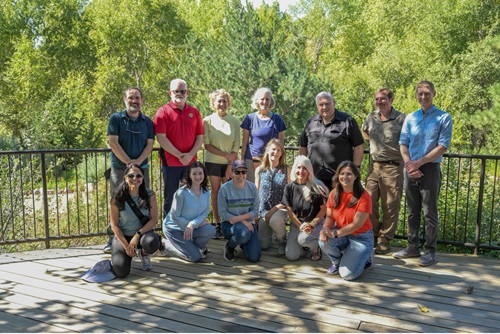
First graduating class of Climate Medicine Diplomates.
Qualifications:
The Diploma in Climate Medicine is designed for U.S.-based healthcare professionals with an advanced degree and licensure in any area of clinical practice, including prehospital care providers, nurses, allied health professionals, and physicians. We also welcome public health practitioners, nonprofit leaders, and sustainability managers. If you come from a different professional background, please contact us at [email protected] to discuss eligibility and explore how this program may align with your goals.
Registration Process:
Registration is managed separately for each Certificate.
Certificate | Date | Location | Link |
| Community Resilience | 2:00–5:00 p.m. Mountain Time, February 18, 20 & 23, 2026 (Virtual portion), all day February 27–28, 2026 (In-person portion) | Arlington, VA | Register Now |
| Disaster Resilience and Response | Dates TBA | TBA | TBA |
Sustainable Healthcare | 2:00–5:00 p.m. Mountain Time, April 29, May 1, May 4, 2026 (Virtual portion), all day May 10–11, 2026 (In-person portion) | St. Louis, MO | Register Now |
| Foundations in Climate Medicine | 2:00–5:00 p.m. Mountain Time, July 27, 29 & 31, 2026 (Virtual portion), all day August 6-8, 2026 (In-person portion). | Boulder, CO | Register Now |
Global Challenges* | Dates TBA | Aurora, CO | TBA |
*Participation in one or more Certificates is a pre-requisite for Global Challenges
If you are not ready to register but would like to join our interest list, please complete the form below.
Fees:
Participants register in each Certificate separately. The program fee includes instruction, access to the Learning Management System, a copy of Global Climate Change and Human Health (2e), some group meals, and transportation for field excursions.
- The fee for each Certificate is $2,900 (USD) for non-physicians.
- The fee for each Certificate is $3,700 (USD) for physicians.
- The fee for CME credits is $150 per Certificate (USD).
- The fee does not include airfare or lodging.
- Whenever possible, discounted rates will be arranged for associated conferences.
- Financial assistance is available (see below).
Registration Policies:
- A $500 refundable deposit is required to reserve your spot.
- Final balance payment is due 45 days prior to the start date.
- Refunds will be granted up to 30 days prior to the start of the program. No refunds will be granted for cancellations made 29 days or fewer prior to the start of the program. All refunds will be assessed an administrative fee of $50.
- Participants who complete all 5 Certificates will be eligible for a 50% discount on their final Certificate.
Financial Assistance:
We will award two $900 discounts per Certificate to exceptional applicants who can attest to need. Once we receive your deposit, you may submit your financial assistance application which includes:
- A 250- to 500-word statement attesting to your need.
- A letter of recommendation from a colleague in your clinical work setting.
Accessibility
The Diploma in Climate Medicine Program strives to ensure equitable access to our program for all participants and we welcome comments on how to improve this course’s accessibility. If you have a question or you would like to request an accommodation, please email [email protected].
Frequently Asked Questions
What can I do with my Diploma?
Explore our 2022-2025 Impact Report to see how graduates are defining the future of Climate Medicine. Once you complete your first Certificate, you’ll join a growing community of practice and a robust professional network. Our graduates have leveraged this education to start state chapters of the Medical Society Consortium on Climate and Health, launch podcasts, run for public office, publish academic articles and op-eds, provide written and oral testimony from the clinician perspective, develop climate and health curriculum for undergraduate and graduate medical education, start green teams at their organization, pitch funding proposals, and start a consulting business. This is a complex space that requires skilled clinician leaders to drive systemic change.
Can I complete the program fully online?
No, to complete each Certificate you must complete all the recorded content and attend both live virtual and in person sessions.
Do I need to be a physician to participate?
No, the Diploma in Climate Medicine is designed for U.S.-based healthcare professionals with an advanced degree and licensure in any area of clinical practice, including prehospital care providers, nurses, allied health professionals, and physicians. We also welcome public health practitioners, nonprofit leaders, and sustainability managers. If you come from a different professional background, please contact us at [email protected] to discuss eligibility and explore how this program may align with your goals.Is the program restricted to U.S.-based practitioners?
While the program primarily focuses on U.S. policy and governance structures, we welcome international practitioners. Please note that travel to the United States is required to complete each Certificate. For more details on program expectations and to
discuss your eligibility, please contact us at [email protected].
Is there a time limit to complete the Diploma?
There is not. While we offer each Certificate once per year, we recognize that participants may need multiple years to complete the Diploma.
Can I take just one Certificate?
Yes, participants are free to enroll in any Certificate that meets their professional goals, however, to earn the Diploma you must complete all five Certificates.
Do I need to complete the Certificates in a specific order?
You do not. You may complete the Certificates in any order with one exception. To participate in Global Challenges, you must have participated in one or more prior Certificates.
How long do I have to complete each Certificate?
You will gain access to the Learning Management System about one month before the first live virtual session, allowing you ample time to start engaging with the course material. After the final in-person session, you will have three weeks to complete any remaining work, including recordings, readings, and quizzes. Since each 60-hour Certificate includes substantial content, we strongly encourage you to begin exploring the material early.
Am I required to attend all sessions?
Yes, participants are expected to attend and actively participate in all live virtual and in person sessions.
What kind of credit can I earn?
Through partnership with the Wilderness Medical Society, we offer AMA PRA Category 1 Credits ™ for each Certificate. In addition, you will earn a certificate of completion and a micro-credential from the University of Colorado.
Do you offer financial assistance?
We offer two $900 discounts per Certificate to exceptional applicants who can attest to need. To apply you will need to submit a 250- to 500-word statement attesting to your need and a letter of recommendation from a colleague in your clinical work setting.
What is included in my registration fee?
The registration fee includes instruction, access to the Learning Management System, a copy of Global Climate Change and Human Health (2e),
group meals, and transportation for field excursions. It does not include travel or lodging.
Do you offer ADA accommodations?
We strive to provide equitable access to our program for all participants and are happy to work with you to offer reasonable accommodation. Some Certificates include outdoor activities with travel of 1-2 miles on trails in variable environmental conditions.
Please contact us at [email protected] if you would like to discuss your specific needs.
Do you support specific dietary requests?
We work with our caterers to ensure that dietary requests are respected and choose restaurants that have robust vegetarian and vegan menus.
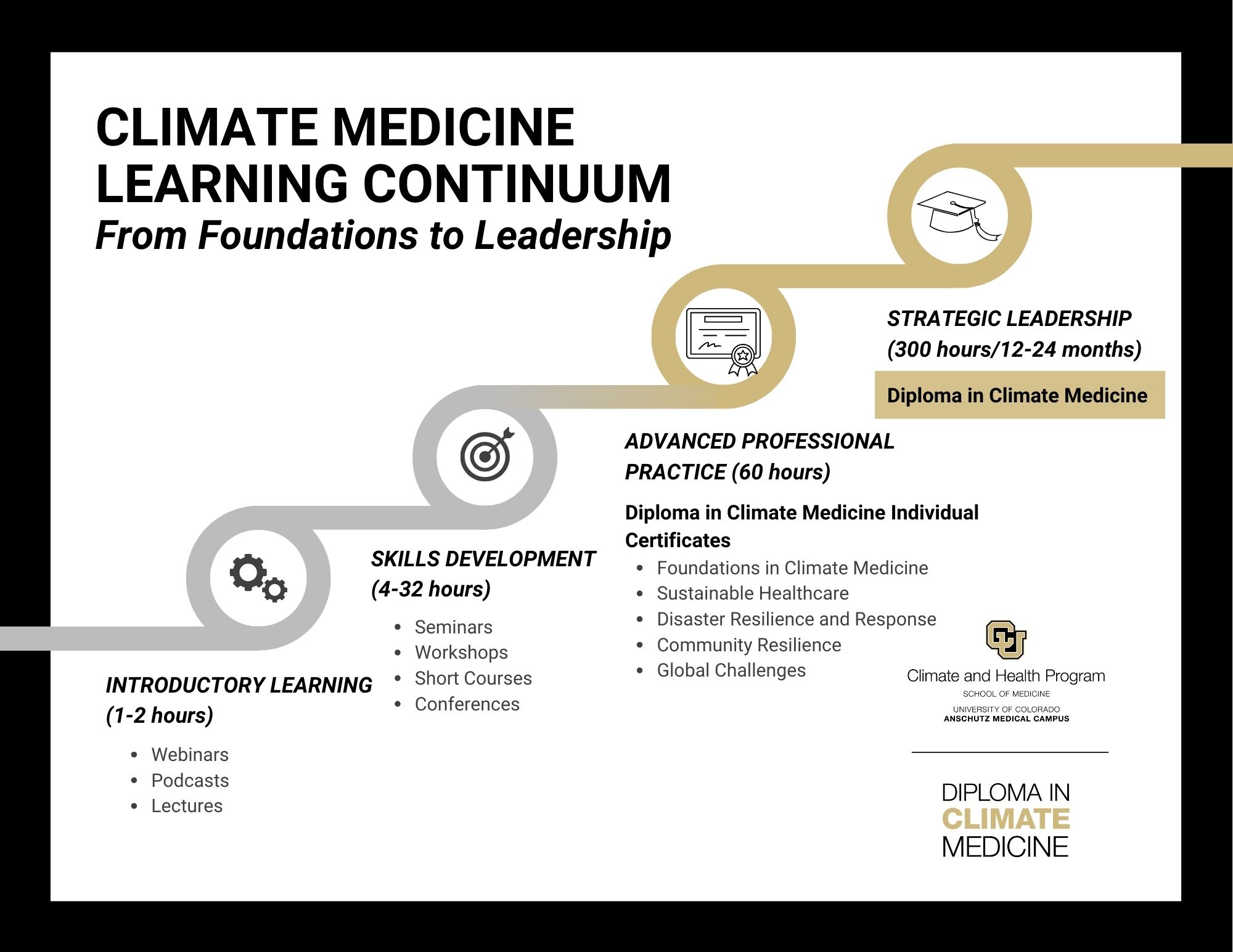
Questions?
For all inquiries regarding the Diploma in Climate Medicine, please email [email protected].
 Bhargavi Chekuri, MD
Bhargavi Chekuri, MD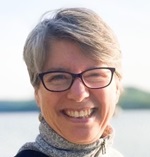
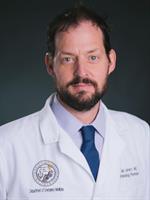
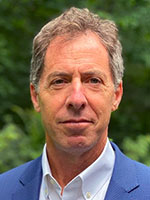 Edward Maibach, PhD
Edward Maibach, PhD Emily Sbiroli, MD
Emily Sbiroli, MD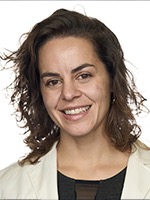 Tara Benesch, MD
Tara Benesch, MD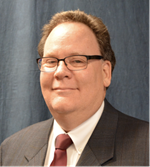 Jason Moats, PhD
Jason Moats, PhD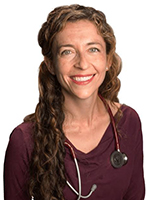 Courtney Howard, MD
Courtney Howard, MD